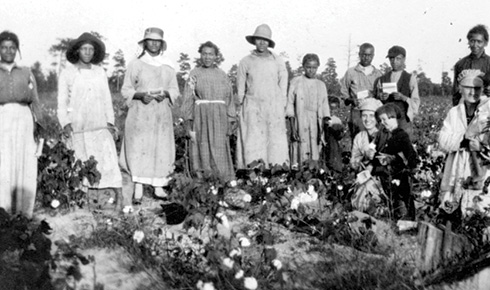
From my earliest recollections about my mother, I knew she loved all people regardless of race or circumstance. She raised my sister, Roberta, and me to do the same.
Roma people in the 1920s were often looked down upon and called “Gypsies” because of their nomadic lifestyle. Mother prayed for the matriarch of one Roma family in Denver, and a miracle occurred. Word spread among other Roma people around the Western United States, and hundreds gave their lives to Christ and lived for the Lord.
Religious leaders of the day criticized Mother’s relationship with these Roma people and especially did not like the fact that they were very generous supporters of Angelus Temple.
When she preached in the Deep South, Mother welcomed black worshipers to her meetings. On some occasions, cultural resistance prevented whites and blacks from worshiping together. In those cases, Mother made sure to conduct meetings for black people at a time and place they would be welcomed.

People with a hatred for black people were horrified at Mother’s behavior and openly condemned her desire for integrated worship services. All races were welcomed at Angelus Temple, even though other churches in the U.S. sadly were segregated by skin color.
When Mother preached in Denver, a local chapter of the Ku Klux Klan took note of her message and wanted a private meeting with her. She would have granted the request, but instead of asking, they forced her into a car, blindfolded her and kidnapped her for the private meeting.
After driving for a while, Mother’s captors escorted her into a room and removed her blindfold. The room was full of white-hooded men, one of whom asked her an abundance of questions about the Bible. She answered and then shared the gospel with them. Never fearing for her own safety, she spoke boldly about the love of God for all people—people of all races and creeds. When the meeting concluded, the men in white released Mother unharmed to return to her other meetings across town.
She preached the gospel to any group of people who would listen, even though she may not have known if the message was received or rejected in their hearts. Some religious leaders criticized Mother for her interactions with people they thought were beneath them. She visited prostitutes in their brothels and told the women how much God loved them.
One notorious madam in Los Angeles convinced police officers to take her to Angelus Temple instead of to jail. She walked down the aisle of Angelus Temple in handcuffs and asked Mother to pray for her. She was wonderfully delivered and became a voice for the saving grace of God among other prostitutes in the city.
I remember Mother telling me about her first missionary assignment in Hong Kong with my sister’s father, Robert Semple. They ministered in terrible conditions amidst suffering people with very little hope. That’s why Mother and Robert went there in the first place, to bring the hope of Christ to people society had shunned.
Sad to say, the unhealthy conditions they faced in Hong Kong cost Robert his life and left my mother a widow with a new baby on the way. Roberta was born shortly after, and Mother continued to minister the best she could. She was never repulsed by the things that made others turn away but was often drawn to the people who were shuffled to the side because of illness or prejudice.
Something in my mother resisted society’s tendency to shun others based on differences. She knew that every person needed the Lord. Whenever and wherever she could, Mother shared the gospel.
When I was a boy in Mother’s camp meetings and healing services, I saw her lay hands on people that others avoided. She always believed God would heal and never worried about being infected by whatever malady they had. I saw her hug people with open sores as she laid her hands on them to pray for God’s healing.
Tens of thousands of people’s lives were changed as a result, and I’m thankful for her tenacity to take the gospel to people others shunned and to places where others would not go.
This article is adapted from a video interview prior to Rolf K. McPherson’s passing.


